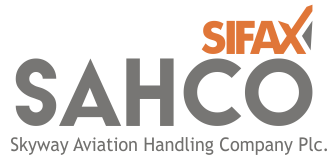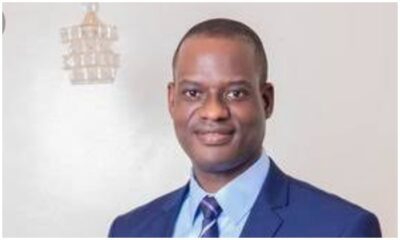News
Oyedele proposes bold economic reforms to boost Nigeria’s growth
The Chairman of the Presidential Fiscal Policy and Tax Reforms Committee, Taiwo Oyedele, has unveiled a groundbreaking plan that could potentially revolutionise the Nigerian economy.
During a captivating panel session at the prestigious Lagos Chamber of Commerce and Industry 2024 Economic Outlook and Budget Analysis, Oyedele disclosed that the Federal Government stands to reap a staggering N8 trillion in annual savings through the removal of fuel subsidies and the unification of exchange rates.
He, therefore, said it was critical for the government to spend the amount saved from the two policies to ameliorate the suffering of the average Nigerian.
He said, “The Nigerian people made sacrifices as a result of the fuel subsidy removal of the government; that is N4 trillion savings a year. We did naira floatation. It is not perfect. We are also saving another N4 trillion. So we are having about roughly N8 trillion transferred from the private pockets of the people to the government.
“So, what we are saying to the government is — can we be intentional in spending this N8 trillion to make sure that it impacts the people most positively? Starting with multidimensional poverty. Why is it that more than 133 million people in Nigeria are living in multidimensional poverty? So these are the conversations we are having now. We want to build a platform where we can track how these monies are being spent.”
He added, “In the committee, we tried to look at the most pressing issues we face as a country — inflation, forex instability, lack of investments. One of our recommendations is for the government to suspend some taxes. We call them nuisance taxes because they frustrate people, and we can’t even see the money in the government treasury.”
According to Oyedele, there is an urgent need to create digital opportunities for the teeming youthful population because Nigeria has enough capacity to generate $20 billion annually from the technology sector.
Hinting on some of the recommendations the panel has made to the Federal Government, Oyedele said there was an urgent need to promote exports, including services and intellectual property because, “Before you start exporting goods, you can export services and intangibles.”
He also said that out of the $20 billion diaspora remittances recorded in 2023, more than 90 percent of the funds did not arrive Nigeria in foreign currencies because of existing loopholes which allow middlemen to divert the foreign currencies and pay the recipients of the funds in naira.
He added, “For example, just asking Nigerian companies and businesses to pay taxes in dollars is about $3.5 billion annually, but we sat and thought about it, and wondered how the idea came about.
“How does it help us, that a Nigerian company will go to the market to go and look for the little dollars that are in Nigeria so it can use it to pay the government of Nigeria? So, just amend the law and you will take that pressure away.”
Also speaking, the Director General of the Budget Office, Ben Akabueze, expressed concern that the country’s penchant for operating budgets with room for deficit in the past three decades had left a debt profile that has raised concern.
Akabueze said, “In our current circumstance, we believe that our biggest fiscal challenge is raising public revenue. That is, the low public revenue against the background of the ever-increasing demand for public goods and services.
“For over two decades, we have been running a deficit in our budget. These deficits have accumulated. They have been funded through debt consistently. The truth is that we haven’t paid back the debt. Now we are at a point where there are concerns about our debt. So we can’t continue with the deficit. The deficit for the 2024 budget is about 3.8 per cent of our GDP.”
Speaking further, Akabueze dismissed criticisms surrounding inordinate expenditure on the part of the government.
He noted that Nigeria was not spending enough and that emphasis should be placed on effective spending and not less spending.
He added, “Sometimes people ask — why don’t you cut expenditure? That’s not a feasible option. In the first place, we are not spending enough. If you look at our public expenditure to GDP ratio, it is below what it should be. So, spending less is not an option for us. Spending more efficiently — yes.”
On his part, the Chief Executive Officer of Financial Derivatives, Bismarck Rewane, said key economic challenges have continued to plague the Nigerian economy.
These challenges, according to him, include sub-optimal and non-inclusive growth, increasing income inequality, high poverty and unemployment rate, spiraling inflation, widening fiscal imbalances, and currency pressures.
He also noted that Nigeria’s inflation maintains its upward trend, largely driven by monetary and cost-push factors.
He said external debt service to export ratio shows the external sector is vulnerable.
Rewane also blamed lack of transparency and clear policy direction, lack of effective price discovery measure, capital controls and inefficiency, and high speculation/ arbitrage activities for the protracted forex crisis in the country.
News
SAHCO Kano station receives ISAGO re-certification


Skyway Aviation Handling Company (SAHCO) PLC’s Kano station has been re-certified by International Air Transport Association (IATA).
The re-certification was issued to SAHCO after it passed the IATA Safety Audit for Ground Operations (ISAGO) standards audit conducted on the company in Kano.
The IATA Safety Audit for Ground Operations (ISAGO) is an aviation specific audit for the global oversight of ground handling service providers (GHSPs). ISAGO focuses on the standardisation of operational procedures and management thereby increasing harmonisation of best practices among the ground handling stakeholders.
By this re-certification, it means that SAHCO’s Mallam Aminu Kano’s International Airport station has continued to model its operations to ISAGO standards, as a result making a commitment to continue to operate to globally accepted industry best practices.
The Audits cut across Organisation and Management (ORM), Load Control (LOD), Passenger and Baggage Handling (PAB), Aircraft Handling and Loading (HDL), Aircraft Ground Movement (AGM), Cargo and Mail Handling (CGM).
As already pledged to its clients (current and prospective), it is SAHCO’s resolve to continually provide quality and efficient Passenger, Ramp and Cargo Handling Services in line with best practices and the highest International Standards to the delight of its customers and benefit of all stakeholders, utilising State-of-the-art equipment, skills, procedures and facilities, and employing a dedicated workforce who are highly skilled.
ISAGO audit is essential to promote safe ground operations and understanding of high-risk areas within ground operations, the audit also eliminates redundant audits from airlines thereby promoting a uniform audit process and harmonized standards that improve quality standards in Aviation Ground Handling.
The duties of SAHCO involve all the actions that take place from the time an aircraft touches down on the tarmac to the time it is airborne, also ensuring that Ground Handling assignment is carried out in an efficient, speedy and safe manner, while deploying the right tools.
News
OAU students injured as Amphitheater ceiling collapses on students


By Jeleel Olawale
No fewer than five 100l students of Obafemi Awolowo University, Ile-Ife were on Thursday injured when the Amphitheater collapsed on them by the heavy rainfall in the morning while the students were taking SER001 Class in Ile-Ife in the morning.
According to a student who was one of the survivors, Babatunde Damilare said, the ceiling in the Amphitheater fell on the students which resulted in the incident.
The students had told the lecturer while the lecture was ongoing to end the class when the heavy rain enveloped the whole Amphitheater. The lecturer did not stop the class until part of the building collapsed on them.
A release by the Public Relations Officer of the University, Mr. Abiodun Olarewaju, said the torrential rainfall of early Thursday morning, accompanied with a whirlwind, which started as students of Obafemi Awolowo University, Ile-Ife, Osun State, were having a lecture, SER to be precise, in the Amphitheatre of the Oduduwa Hall, affected the ceiling of the Amphitheatre as it fell off and injured a few of the students.
The Vice-Chancellor, Professor Adebayo Simeon Bamire led other principal officers to the Medical and Health Centre of the University, and ensured that the injured students were given adequate medical attention.
The statement stated that the Vice-Chancellor also followed two other students, whose cases demanded more medical attention to the Obafemi Awolowo University Teaching Hospital Complex (OAUTHC), where the Chief Medical Director (CMD), Professor John Okeniyi, physically supervised the proceedings.
The Vice-Chancellor has, therefore, appealed for calm and urged students and staff to go about their academic and administrative activities without any form of untoward action.
Meanwhile, the management of the University has sealed off the amphitheatre, the venue of the unfortunate incident, until further notice.
Also, the president of the Students Union, Comrade Abbas Akinremi said, the incident of ceiling collapse occurred at the Amphitheater of Oduduwa Hall of the university which has never occured in the history of the institution.
“The place is always being used for social events. Nothing of such happened. He said the situation has been stable as normalcy has since been returned to the institution.
“The institution management has been on top of the incident. The Vice-Chancellor really took proactive steps in ensuring that normalcy has returned to the institution. He has visited the injured students at the University health centre before they were referred to Obafemi Awolowo University Teaching Hospital,” he said.
Abbas debunked the rumour that a roof collapsed as it’s being circulated around.
He said that it was part of the ceiling that fell on some students, five of whom have been taken to the University health centre, while the most critical two were taken to Obafemi Awolowo University Teaching Hospital Complex (OAUTHC).
According to him, the affected students had been adequately treated and were all stable, thanking God for no casualty.
He urged school management to continue monitoring and ensure maintenance of lecture building, hostels for the safety of staff and the students.
News
JUST IN: Student loan application portal opens May 24


The Federal Government, through the Nigerian Education Loan Fund, on Thursday night announced that May 24, 2024, was the official date for “the opening of a portal for student loan applications,” a statement signed by the media lead of the Fund, Nasir Ayantogo said.
Ayantogo, in a statement, said the opening of the application portal marks a significant milestone in the commitment of President Bola Tinubu to” fostering accessible and inclusive education for all Nigerian students.”
On June 12, 2023, Tinubu signed the Access to Higher Education Act, 2023, into law to enable indigent students to access interest-free loans for their educational pursuits in any Nigerian tertiary institution.
The move was in “fulfilment of one of his campaign promises to liberalise funding of education,” a member of the then Presidential Strategy Team, Dele Alake, said.
The Act, popularly known as the Students Loan Law, also established the Nigerian Education Loan Fund to process all loan requests, grants, disbursement, and recovery.
Although the government initially announced that the scheme would be launched in September, it suffered several delays, leading to an indefinite postponement in early March.
The Presidency had linked the delay to Tinubu’s directive to expand the scheme to include loans for vocational skills.
After receiving a briefing from the NELFUND team led by the Minister of State for Education, Dr Yusuf Sununu, on January 22, the President directed the Fund to extend interest-free loans to Nigerian students interested in skill-development programmes.
Tinubu based his decision on the need for the scheme to accommodate those who may not want to pursue a university education, noting that skill acquisition is as essential as obtaining undergraduate and graduate academic qualifications.
“This is not an exclusive programme. It is catering to all of our young people. Young Nigerians are gifted in different areas.
“This is not only for those who want to be doctors, lawyers, and accountants. It is also for those who aspire to use their skilled and trained hands to build our nation.
“In accordance with this, I have instructed NELFUND to explore all opportunities to inculcate skill-development programmes because not everybody wants to go through a full university education,” he had said.
Through the portal, students can now access loans to pursue their academic aspirations without financial constraints.
The portal, according to the statement, provides a user-friendly interface for students to submit their loan applications conveniently.
“We encourage all eligible students to take advantage of this opportunity to invest in their future and contribute to the growth and development of our nation.
“Students can access the portal on www.nelf.gov.ng to begin application,” the statement said.
-
Finance4 months ago
Court orders Sen. Victor Umeh to repay N136m bank debt to AMCON
-



 Abuja Update3 months ago
Abuja Update3 months agoUNDP, FG partnership needed to achieve inclusion, equity- Minister
-
capital market2 years ago
Rt.briscoe, FBNH, Others halts negative performance of stock market
-
Abuja Update2 months ago
Banks drive stock market performance with N147bn gain
-



 Health1 month ago
Health1 month agoCapacity training will reduce migration of health workers- NPHCDA
-



 Business3 weeks ago
Business3 weeks agoTingo Group unveils Tingo Electric, Tingo Cola drink at Lagos launch
-
Submission Guidelines4 months ago
CALL FOR SUBMISSIONS: POETRY COLUMN-NND
-
News4 months ago
Oil thieves sponsoring malicious media campaign against Navy – Spokesman






